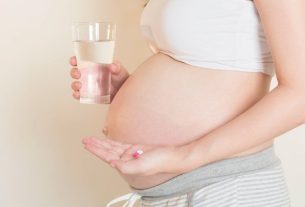Decaffeinated coffee is a product made from coffee beans, which undergo an industrial decaffeination process, which is the removal of at least 97% of the caffeine content, using water, solvents, or water with carbon dioxide .
Because it has less caffeine than the regular version, decaffeinated coffee is a good, safer option for pregnant women and people with anxiety, stress or insomnia, for example.
Furthermore, as it contains bioactive compounds with antioxidant and anti-inflammatory action, such as chlorogenic acid, kahweol and caffeic acid, decaffeinated coffee also helps prevent situations such as premature aging, diabetes and heart attack.

Is decaffeinated coffee bad?
Although decaffeinated coffee has less caffeine than the regular version, it still contains caffeic, gallic and chlorogenic acid, compounds that stimulate the secretion of gastric acids, causing stomach irritation. Therefore, decaffeinated coffee should be consumed in moderation by people who suffer from gastritis, ulcers and reflux.
However, decaffeinated coffee is not harmful for people who have conditions such as insomnia, anxiety, migraines or stress, and is a good alternative for those who like this drink, but need to reduce their caffeine intake.
Furthermore, decaffeinated coffee can also be consumed by people who use medications that can interact with caffeine, such as asthma medications, non-steroidal anti-inflammatory drugs, such as AAS, ibuprofen and diclofenac, for example.
Main benefits
The main health benefits of decaffeinated coffee are:
1. Prevent diabetes
Decaffeinated coffee helps prevent diabetes, because it contains antioxidants, such as chlorogenic acid, kahweol and caffeic acid, which improve the function of the hormone insulin, helping to regulate blood glucose levels;
2. Avoid cardiovascular diseases
Because it has great amounts of bioactive compounds with antioxidant and anti-inflammatory action, decaffeinated coffee improves artery health and promotes blood circulation, preventing cardiovascular diseases such as heart attack, high blood pressure and stroke.
3. Prevent premature aging
Decaffeinated coffee prevents premature aging, because the antioxidants present in this drink, such as chlorogenic acid and caffeic acid, protect the skin against the action of free radicals, preventing sagging and the appearance of wrinkles.
4. Avoid depression
The polyphenols present in decaffeinated coffee fight free radicals and reduce inflammation in the cells of the central nervous system, which helps improve mood, preventing depression.
Can pregnant women drink decaffeinated coffee?
Pregnant women can drink regular and decaffeinated coffee, because moderate caffeine consumption is not harmful to the health of the mother or baby. Check out more about drinking coffee during pregnancy.
The maximum amount of regular coffee for pregnant women, considered safe by the American College of Obstetrics and Gynecology, is 340 ml of brewed coffee per day, which is equivalent to 200 mg of caffeine.
Although moderate consumption of decaffeinated coffee is safe during pregnancy, there is still no official recommendation on the safe amount of this drink during this phase. Therefore, it is advisable to always talk to your obstetrician before drinking this drink.
Does decaffeinated coffee have caffeine?
Although it has smaller amounts of this compound than the traditional version, decaffeinated coffee also has caffeine. Each 236 ml of decaffeinated coffee has between 2 and 3 mg of caffeine.
Difference between regular and decaffeinated coffee
Normal coffee does not go through the decaffeination process and, therefore, has great amounts of caffeine, which is a compound that brings many health benefits, in addition to having a stimulating effect. Check out all the benefits of coffee.
Decaffeinated coffee goes through an industrial process to remove caffeine and has no stimulating effect. However, this type of coffee also has bioactive compounds, such as chlorogenic acid, kahweol and caffeic acid, which promote several health benefits.
Bibliography
- NATIONAL COFFEE ASSOCIATION OF U.S.A. All About Decaffeinated Coffee. Available at: <https://www.ncausa.org/Decaffeinated-Coffee>. Accessed on May 18, 2023
- NEHLIG, Astrid. Effects of Coffee on the Gastro-Intestinal Tract: A Narrative Review and Literature Update. Nutrients. Vol.14. 2.ed; 2022
- COLOCARO STATE UNIVERSITY. Nutrient-Drug Interactions and Food. Disponível em: <https://extension.colostate.edu/topic-areas/nutrition-food-safety-health/nutrient-drug-interactions-and-food-9-361/>. Acesso em 18 mai 2023
- COLOMBO, Raffaela; PAPETTI, Adele. Decaffeinated coffee and its benefits on health: focus on systemic disorders. Critical REviews in Food Science and Nutrition. Vol.61. 15.ed; 1-18, 2929
- THE AMERICAN COLLEGE OF OBSTETRICIANS AND GYNECOLOGISTS. Moderate caffeine consumption during pregnancy. 2020. Disponível em: <https://www.acog.org/-/media/project/acog/acogorg/clinical/files/committee-opinion/articles/2010/08/moderate-caffeine-consumption-during-pregnancy.pdf>. Acesso em 18 mai 2023
- AMERICAN PREGNANCY ASSOCIATION. Caffeine during pregnancy. Disponível em: <https://americanpregnancy.org/healthy-pregnancy/pregnancy-health-wellness/caffeine-intake-during-pregnancy/>. Acesso em 18 mai 2023

Sign up for our newsletter and stay up to date with exclusive news
that can transform your routine!
Warning: Undefined array key "title" in /home/storelat/public_html/wp-content/plugins/link-whisper-premium/templates/frontend/related-posts.php on line 12
Warning: Undefined array key "title_tag" in /home/storelat/public_html/wp-content/plugins/link-whisper-premium/templates/frontend/related-posts.php on line 13




